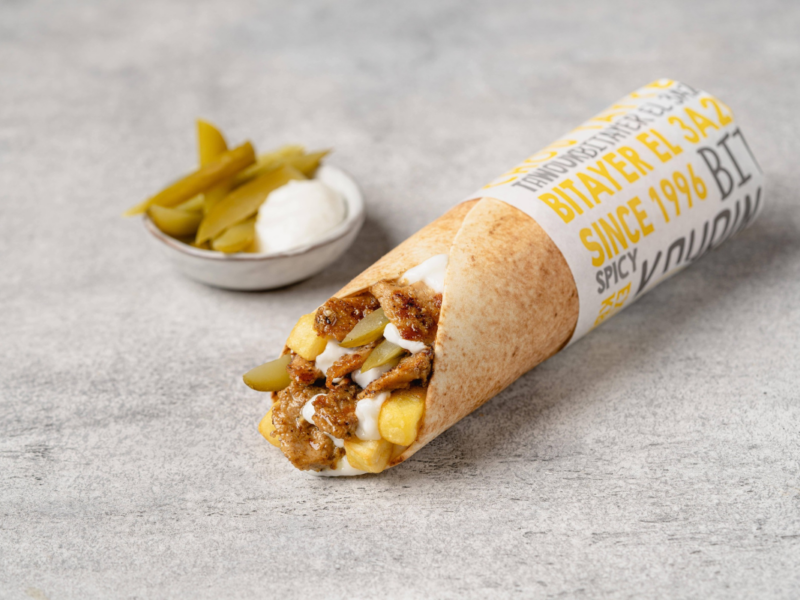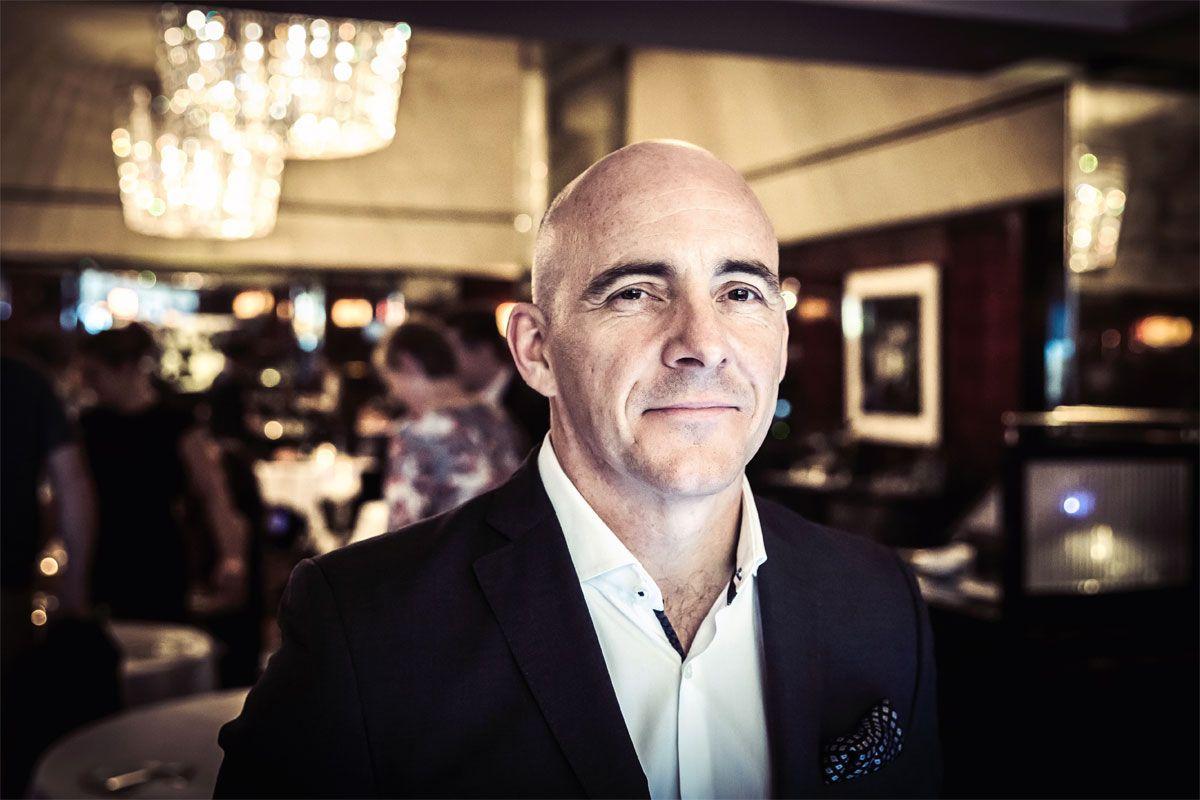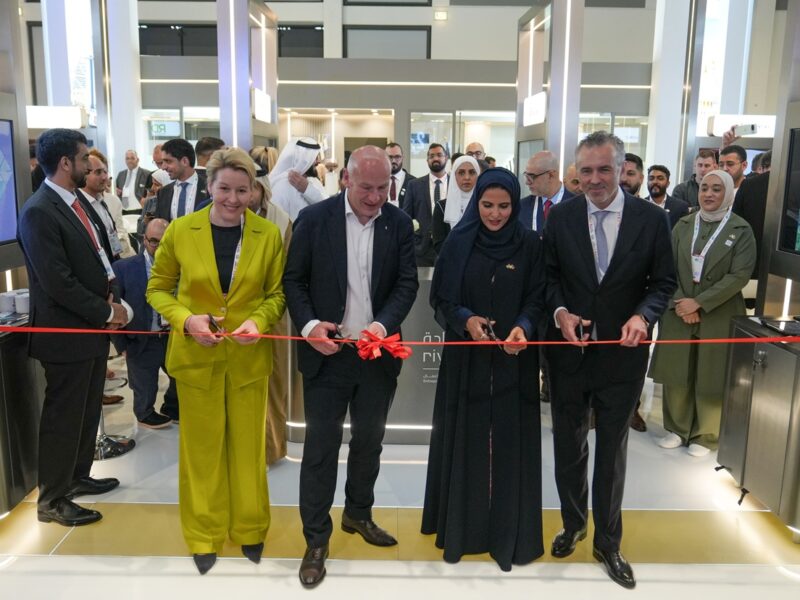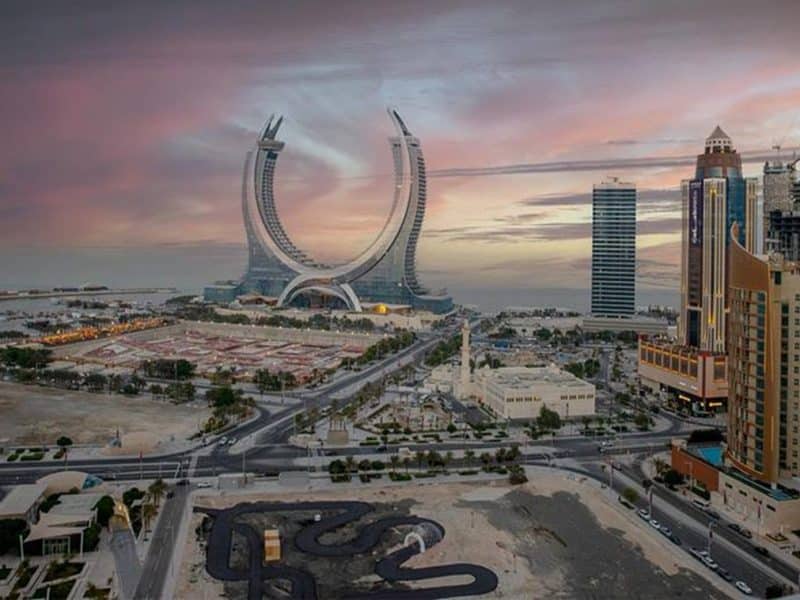The legendary, if not infamous, chef Gordon Ramsay may be the face behind his mega food and beverage giant, the Gordon Ramsay Group, but there is another mastermind arguably just as responsible for the company’s strong comeback since a downfall in 2008 that “almost killed” it.
Meet Stuart Gillies, Ramsay’s right-hand man and the group’s chief executive.
Since his appointment as CEO six years ago, Gillies decreased the group’s losses from $8.2m in 2013 to $900,000 in September 2015, while sales grew 12.6 percent to $64.5m in 2015, following several restaurant openings, including in Dubai, Hong Kong and Singapore.
It is at the group’s British-designed brasserie Bread Street Kitchen, which opened in October 2015 at The Atlantis on The Palm Jumeirah, where Arabian Business meets Gillies. In Dubai for the Global Restaurant Investment Forum (GRIF), Gillies is sharp-witted. Talking nineteen to the dozen, he is not shy. But, then again, you do not expect anyone who works with Ramsay to be shy. The hot tempered chef is best known for his controversial cooking show Hell’s Kitchen, where his frequent rage at trainees is filmed for entertainment.
So what is it like working for Ramsay? Colourful, according to Gillies.
“All chefs are known for their temper,” he says, laughing.
“They all are. You know, it comes with being in a colourful industry. We’re not a boring industry. We’re a colourful industry and generally our people are all colourful,” he says.
He may call it what he likes, but it is no secret that working with Ramsay is anything but a walk in the park. Yet Gillies, who was himself a chef for 25 years, quickly comes to his comrade’s rescue.
“I think sometimes people misperceive what Gordon, as a leader in that era, was about. Gordon inspired all of the [chefs working with him] to push harder and work harder … They all went on to do great things. Gordon inspired a whole generation. You can’t deny that,” he says.
Undoubtedly so. Just a few months before Ramsay’s grand opening of Bread Street Kitchen, his former protégé Jason Atherton, who opened Ramsay’s Verre restaurant at the Hilton Dubai Creek in 2001 (before it closed 10 years later), launched his very own Dubai venue Marina Social. Two of Ramsay’s other students – Scott Price and Nick Alvis — also went on to launch several restaurants in the city, including their most recent venture, Folly at the Madinat Jumeirah.

Fifty-year-old Gordon Ramsay is the owner and chairman of the Gordon Ramsay Group.
It is no wonder then that Gillies should be confident Ramsay’s group would go back to turning a profit this year. But it is not Ramsay alone who will be taking the Group there. Gillies, dressed in a well-cut suit, has earned a lot of the credit for the company’s revival.
Part of Gillies’ success has been to put less of Gordon Ramsay in the Gordon Ramsay Group.
“We’ve de-branded [Gordon’s name] a lot in London. Well, we didn’t de-brand, we haven’t used the brand because for many years it was so easy for the company to just stamp the name and maybe the old management strategy was to use the man because it makes good business sense on paper,” he says.
It was time for a change, Gilles says.
“It had been really successful for so long but you really want all your new businesses that are diverse to be fiercely independent. So the team that works here, you cut them down the middle, they are Bread Street Kitchen. They love Gordon and they have huge respect for him, but they are Bread Street Kitchen. And 15 years ago … they were Gordon Ramsay, which was really useful but it’s hard to diversify … and create unique concepts. So we launched [each restaurant] independently. It was much harder, because people asked. ‘Oh what is it? Who owns it?’ But it becomes successful based on quality, not based on the brand … that’s more powerful long-term,” he says.
“You have to create the layers of quality and brand within a brand, because otherwise everything relied on Gordon, and that’s a bit lazy, really, and it’s a bit inefficient. So we removed Gordon’s name or didn’t use it on purpose, so then we bring Gordon back in not as the brand that would make people come but the brand that would stand for quality [and] also as a great chef and restaurateur.
“But then when he sits down he has an opinion as one of the owners, but they don’t all just freak out. Gordon says, ‘I don’t like the chairs’. I say, ‘Okay what do you think we should do?’ And then … everyone has their comment and we all have an honest opinion of it, whereas many years ago, Gordon would make a comment and they would all freak out. They’d say, ‘Gordon hates it. We have to change everything’.”
It seems then that it is no longer hell’s kitchen in Ramsay’s company, where the 50-year-old is owner and chairman. The celebrity chef’s firm is doing relatively well in Dubai, where Gillies says there are “more British eating in restaurants here than in London”.
But London is not the only place Gillies associates with Dubai. Vegas, he says, is “very similar” to the Gulf city.
“[Dubai] is really comparable to Vegas. [They’re] so similar. And we know Vegas very well. Because we spent a lot of years there with our partners. So it’s amazing how many similarities there are,” says the Englishman.
“I think there is a desire for new, as an expression. I think there’s the same hunger, without being cliché, but there’s the same desire for new as there is in Vegas.

To be successful, Bread Street Kitchen must be seen as a quality restaurant, not just a Ramsay product.
“Vegas is a very clever machine. It’s not just a tacky collection of restaurants … It’s a really clever machine. And they have people come in and they spend three days, they spend all their money and they leave happy. That’s a pretty clever company that can do that so it’s a win-win [situation]. And I think Dubai has taken some of those elements of new; almost loud; high quality; make sure the delivery is great. And I know that they now recruit from Vegas … We found that from one of our partners that they’ve started to recruit some of the Vegas people. So I think they understand the energy and the dynamic that is quite similar to Dubai. It’s very fast paced. You have to keep evolving, almost keep reinventing … whereas in other cities you can just have a concept that’s quite consistent and runs quite similar through the years.”
Dubai is just as good as Vegas, Paris or London when it comes to its dining scene, according to Gillies. So much so, in fact, that he says the city is ready for the Michelin star programme. Although he does not think the emirate actually needs it.
“I think it’s ready [for the Michelin Star programme]. The market is ready. A lot of its crowd eat regularly at Michelin star places anyway. [But] I don’t think it needs it. It just creates another element of special and new in some ways; it’s got a brilliant dining scene without it,” he says.
Yet a brilliant dining scene does not come without its share of hitches. Despite the city attracting most of its talent from abroad, staff remain “the biggest problem for any operator”, Gillies says.
“Because there’s just not enough [talent]. We have a lot of programmes internally where we develop talent and we try to retain talent as much as possible by giving them opportunities to grow in different paths,” he says.
“And we have some great examples of that. I was a chef for a good 25 years and now I run the group as CEO. A massive change. Six years ago, I wasn’t qualified as a CEO, but I knew the industry well and that was the key skill I needed.”
Looking at the way the group is headed under Gillies, there is no doubt the chief executive is fit for the job – more so, dare we say, than Ramsay himself.









